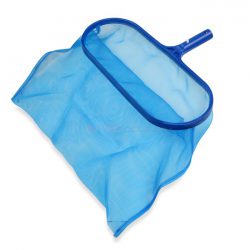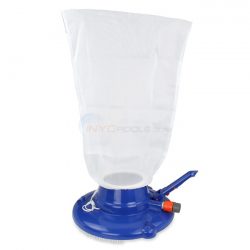In this blog post, we will discuss when would you use the waste position on your multiport valve. There are different makes and models of them which do not all operate exactly the same. Some may have positions that others do not. Many of these valves have a position called the “Waste” position which can be very useful in certain situations.
Do You Have A Multiport Valve With A Waste Option?
If this looks similar to your valve then we have a few tips as to how this valve can benefit you. Most pool owners will encounter a time that their swimming pool ends up getting a pretty bad algae bloom. In those cases, it can be difficult to get the swimming pool clear and ready again. When the swimming pool has been treated to kill the algae, it will settle to the floor of the swimming pool after 24-48 hours. Once settled, it is a great opportunity to utilize the waste position on the multiport valve. When there is dead algae on the pool’s floor, it is common to be very difficult, and time-consuming for the filter to grab all of the dead algae. So, we recommend something called “vacuuming to waste”.
Vacuuming To Waste
Vacuuming to waste is actually not that different from regular vacuuming except for the fact that you are literally vacuuming everything directly out of the swimming pool. You will be dumping pool water and what you vacuum out of the pool completely (not filtered, not circulated back to the pool, but discharged from the pool). Here are a few important preparatory steps to take before performing this task.
- Be sure to have some extra water in the swimming pool since you will be losing some.
- Place a proper system where water will be discharged from the valve. Using a backwash hose or hard plumbing the waste port line can be used. Don’t forget that this water may have high chlorine levels due to the treatment so it may kill grass and plants.
- Chlorinate the pool and confirm it has a stable chlorine level. This will prevent dead algae from growing again during the clean-up process. Monitor your pool chemistry to ensure this.
Once you have prepared, you can then place the multiport valve in the waste position in order to vacuum. Always rotate the valve in the clockwise direction and make sure the pump is off when rotating. Please keep in mind that as you are vacuuming you are also losing pool water, so you want to do your best to move at a good pace in an organized fashion to cover as much square footage as possible. Be careful not to move too fast or you may stir up the dead algae. In some cases, there is a substantial amount of larger debris on the pool floor that you may need to remove prior to vacuuming to waste. Doing a pool floor leaf net and leaf-eating to get that debris out is wisest done 24-48 hours before vacuuming to waste. You can always repeat the process 24 hours after a procedure.
Very Dirty Pool Due To Irregular Circumstances
Sometimes, swimming pools have some sort of renovation, patio/deck cleaning, or landscape/yard work that has badly dirtied the pool. A swimming pool may even have some sort of dirt run-off that may have made its way into the pool. Often times, these are far more than the regular amount of pool maintenance needed. That is where a vacuum to waste with the multiport can be very beneficial. For this procedure, you will follow the same steps as the vacuum-to-waste procedure for an algae treated pool.
Winterizing A Swimming Pool
When we winterize a swimming pool, we essentially clean the swimming pool, equipment, and potentially drain water from them. You can also disconnect some pieces of equipment to put them away for the winter. Those details really vary depending on the geographic location of the pool, the system, and the pool owner’s preference. However, the vacuuming-to-waste part stays the same. Instead of vacuuming the dirt into the filter, we recommend vacuuming to waste to rid the pool of it completely.
These would be the most common reasons to vacuum to waste using a multiport valve. If you would like a similar feature on your equipment and don’t have a multiport valve, you can always add a diverter or ball valve.
If you have any other questions about pool and spa products please do let us know - we are here to help!




